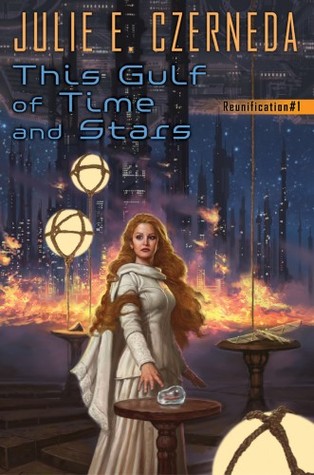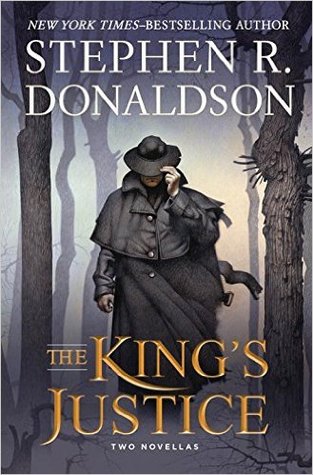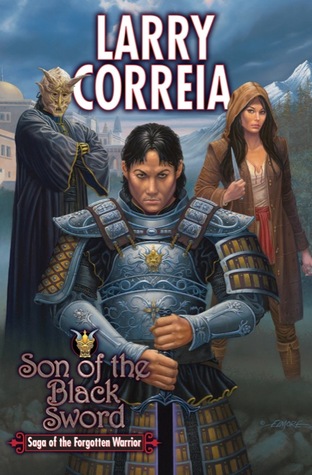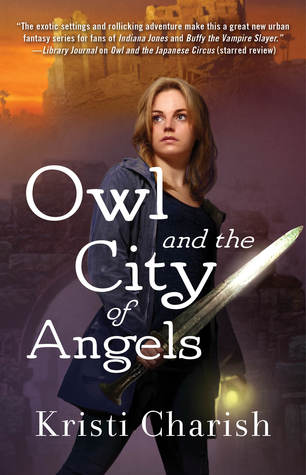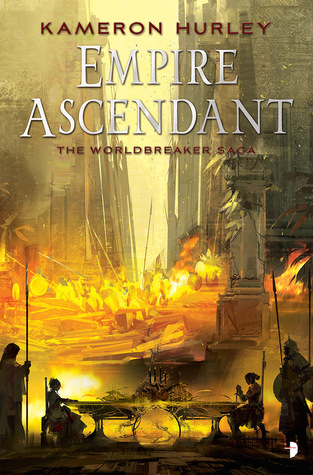Although it shares the same world as The Iron Wolves and The White Towers, Andy Remic’s first book in The Blood Dragon Empire is an entirely different. While those books were very much high-stakes epic fantasies, complete with massive battles and bloodshed, The Dragon Engine is more of a traditional quest tale – albeit one that subverts the usual tropes. For starters, our heroes seem to be the typical gang of adventurers – complete with barbarian, archer, cleric, assassin, and more – but they’re actually retired war veterans whose quest days are comfortably behind them. As it turns out, one of them is dying of cancer, one is drinking his sorrows away, and several are nursing broken hearts. While all but one would have turned down an adventure based solely on greed, they find a common purpose in seeking out a magical cure for their dying companion. While you don’t need any prior knowledge of the two Rage of Kings novels to enjoy this, fans will be pleased to discover that King Yoon is still in control, and as debauched as ever. He has serious competition for the most over-the-top, scene-chewing villain however, in the form of First Cardinal Skalg,…
The Clan Chronicles is a series of books (This Gulf of Time and Stars is the first book of the third trilogy) set in a distant future of interstellar travel, alien races, and telepathic abilities. The Trade Pact, the first trilogy, introduced us to the alien Clan, a humanoid race that has doomed itself to extinction through selective breeding. The fact that Clan females kill their prospective mates, though, isn’t the scariest thing about them – it’s the way they exist in secret, disguised as Humans, using their telepathic powers to erase memories and control people without them knowing. Stratification, the second trilogy, is actually a prequel, introducing us to an earlier version of the Clan, long before they joined the Trade Pact, and before they bred themselves to the brink of extinction. Reunification, the third trilogy, is a direct sequel to both stories. This Gulf of Time and Stars advances both the story and the Clan’s situation, introducing us to an era where they have been secretly invited into the Trade Pact, and then just as secretly exposed, adding the threat of extermination to that of extinction. While it could be read on its own, readers will get a lot more out of the story with knowledge of what’s come first. Julie E. Czerneda…
Stephen R. Donaldson is an author who (for better or worse, depending on how you feel about its deliberately unlikable protagonist) is largely identified by his three Thomas Covenant trilogies. It’s such a massive epic, and such a defining force in the fantasy genre, that it’s easy to forget he’s also written a pair of lighter portal fantasies (Mordant’s Need), an even darker science fiction saga (The Gap Cycle), a contemporary mystery series (The Man Who), and multiple short stories and novellas. The King’s Justice is his latest collection, pairing two wildly different novellas in a surprisingly slender volume. Together, they make for an interesting read, showcasing two sides of his narrative talent. First up we have the title story, The King’s Justice, which actually has something of an Old West feel to its flavor of traditional fantasy. Here we encounter a mysterious figure in black, known only as Black, who arrives in the village of Settle’s Crossways on the trail of murder. This was a dark, violent sort of tale, complete with magical compulsions and abhorrent sacrifices, that walks the sword’s edge between justice and vengeance. For such a short novella, there’s actually a lot of history and mythology hinted at in its pages, making it feel…
Larry Correia is an author best known for his guns-and-monsters, no-holds barred, testosterone-soaked urban fantasy sagas, Monster Hunter International and the Grimnoir Chronicles. For those who were curious as to how he’d make the transition from guns to swords, Son of the Black Sword is pretty much everything you’d expect, with his macho sense of almost superhuman bravado slipping well into a pulpy heroic fantasy world. It’s not great literature, and lacks a certain polish in the narrative, but it’s an engaging bit of fantasy fiction. The world building and mythology encompass a very South Asian flavored world, which is a nice change of pace from mostly European fantasy, but there’s an important twist – instead of the seas providing prosperity and purpose, they are something to be feared, dotting the coasts and the beaches with the cobbled together hovels of the lowest of non-people. You see, due to an age old supernatural pact, man commands the land, demons command the seas . . . and the Law states that any who trespass must die. Lok is a bland, bureaucratic world, full of rigid caste systems, where faith and superstition are forbidden. It’s so deliberately constructed that if you don’t see the threat of rebellion coming in the first few chapters, and don’t anticipate the rise of a…
Last year’s Owl and the Japanese Circus was a solid 3-star read for me, an entertaining urban fantasy that managed to reignite my excitement for a genre that I felt had become tiresome and repetitive. Granted, the whole “Indiana Jane” aspect was a big part of that – I’m a sucker for any sort of archaeological, tomb-raiding adventure – but Kristi Charish really impressed me. I went into Owl and the City of Angels hoping for more of the same, but not really knowing where she’d take the story next. The simple answer to that? To a whole other level. This is one of those sophomore efforts that manages to top the book before it in every way. It’s a bigger, bolder story, and one that really does an exceptional job of building upon all the elements of the first. Owl is, as everybody around her likes to remind us, an absolute train wreck. She’s neither the smartest nor wisest of young women, her choices are often suspect, and her selective morality is . . . well, just about perfect for a professional antiquities thief. Owl is defined by her contrasts and her contradictions, and what makes her exasperating for some readers is what makes her fascinating for others. Personally, I…
Last year’s The Mirror Empire was one of the most exciting (and sometimes divisive) entries in an already stellar year of fantasy fiction. Kameron Hurley crafted a book that was daring, original, and even challenging. While putting her own spin on the idea of parallel worlds in a post-apocalyptic sort of portal fantasy, she turned gender roles and relationships on their head. It was the most brutally violent female-led fantasy I had ever encountered. It was ambitious, awesome, imaginative, and exhausting in equal measure . . . and I had serious concerns as to how a sequel would fare. Fortunately, the depth she established there proves to have even more layers than we thought, making Empire Ascendant a more than worthy follow-up. Having brought the two pivotal universes together at the end of the first book, Hurley continues to develop her worlds here. We already had a pretty good idea of the geographies and societies, but this time around we get a much deeper understanding of the politics involved. What impressed me most was the fact that she let both sides have their moments in the spotlight, questioning the means and motives of each. Conflicts both personal and political are dealt with here, and they are as complicated and confusing as…


